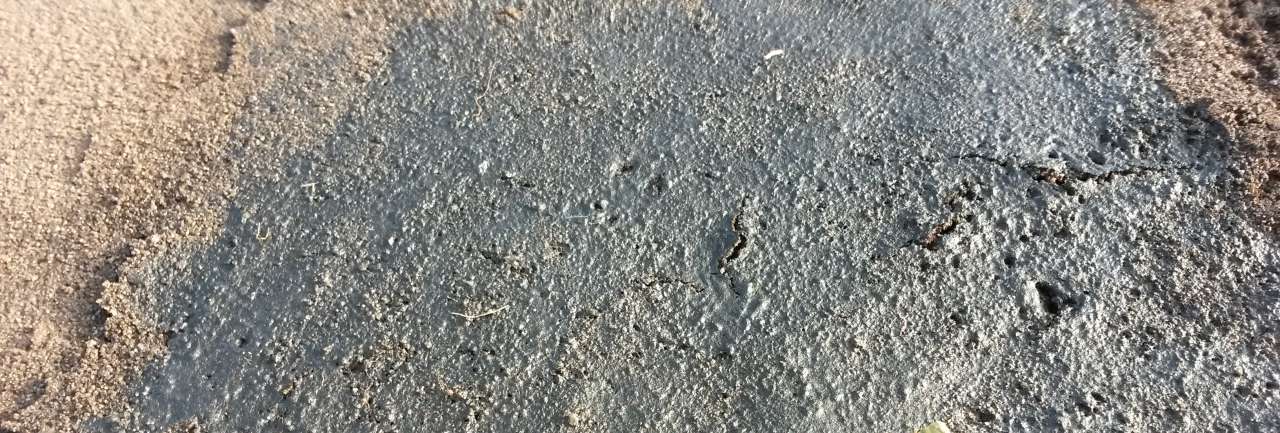Division of Food Production and Society
Biodegradable mulch film from rest raw materials.

Finished
Last updated: 10.10.2017
End: dec 2017
Start: jan 2014
End: dec 2017
Start: jan 2014
In agricultural production of vegetables there is a challenge of competition between food plants and weeds. Use of herbicides has been the most actual treatment against weeds, but is now on its way out, due to environmental concerns. The idea of a spray-able biodegradable mulch film is that it should be possible to spray the mulch close to the plants at planting or after planting to make a physical barrier against weeds.
The main objective of the project is “to build knowledge and expertise in commercial utilization of co-streams of food industry as a spray-able and biodegradable film with good mechanical barrier properties against germinating weeds in row crops”.
SO:1. Identify and evaluate components of co-steams from food industry for use as ingredients in biodegradable soil film.
SO:2. Develop and test films in laboratory for feasibility and select the best films to test further in agricultural studies.
SO:3. Investigate the ability of selected films to prohibit penetration of germinating weeds under field conditions at different rain regimes and soil types.
SO:2. Develop and test films in laboratory for feasibility and select the best films to test further in agricultural studies.
SO:3. Investigate the ability of selected films to prohibit penetration of germinating weeds under field conditions at different rain regimes and soil types.
Programme: Bionær
Project owner: Bioforsk – R&D participant and project owner
Project partners:
Norner Research AS – R&D participant
VTT, Finland – R&D participant
University of Nebraska, USA – R&D participant
Tommen Gram Folie AS – industry participant
Norilia AS – industry participant
Bama Gruppen AS – industry participant
Gartnerhallen SA – industry participant
Project owner: Bioforsk – R&D participant and project owner
Project partners:
Norner Research AS – R&D participant
VTT, Finland – R&D participant
University of Nebraska, USA – R&D participant
Tommen Gram Folie AS – industry participant
Norilia AS – industry participant
Bama Gruppen AS – industry participant
Gartnerhallen SA – industry participant
| Start - end date | 01.01.2014 - 31.12.2017 |
| Project manager | Randi Seljåsen |
| Division | Division of Food Production and Society |
| Department | Horticulture |
Project summary
The aim of the proposed project is to develop a biodegradable mulch-film which can be sprayed directly on soil of row crops to develop a strong layer which bind to the soil particles and create a barrier against germinating weeds. Raw material used for producing the film will bee low cost bio-waste co-streams from Norwegian food industry.
Within the field of biodegradable film research there has been added a large knowledge pool the last decade which could be used for new investigations related to soil films. Among the relevant studies, development and characterisation of films based on polysaccharides (starch) from potato as well animal or fish protein or chicken feather are relevant.
Challenging topics in the project will be to identify and evaluate components of co-steams from food industry for use as ingredients in biodegradable soil film (WP1). Further steps will be to develop and test films in laboratories for feasibility and select the best films to test in agricultural studies (WP2). By the agricultural studies it will be selected films with sufficient characteristics according to ability to prohibit penetration of germinating weeds at different rain regimes and soil types (WP3).
Results from research done in this area at University of Nebraska will be used as a foundation for development of films based on Norwegian raw material co-streams at Norwegian farming practice and climate. Scientist from this research group will attend the project as scientific experts. Partners form Technical Research Centre of Finland, VTT will participate in raw material sourcing: Identify and evaluate components of co-streams and components for use as ingredients in biodegradable soil film (WP1), the Norwegian partner ‘Norner, Independent Industrial Polymer Institute’ will be responsible for the development and testing of physical properties of films in laboratory while Bioforsk will be responsible agricultural testing of selected films.
Within the field of biodegradable film research there has been added a large knowledge pool the last decade which could be used for new investigations related to soil films. Among the relevant studies, development and characterisation of films based on polysaccharides (starch) from potato as well animal or fish protein or chicken feather are relevant.
Challenging topics in the project will be to identify and evaluate components of co-steams from food industry for use as ingredients in biodegradable soil film (WP1). Further steps will be to develop and test films in laboratories for feasibility and select the best films to test in agricultural studies (WP2). By the agricultural studies it will be selected films with sufficient characteristics according to ability to prohibit penetration of germinating weeds at different rain regimes and soil types (WP3).
Results from research done in this area at University of Nebraska will be used as a foundation for development of films based on Norwegian raw material co-streams at Norwegian farming practice and climate. Scientist from this research group will attend the project as scientific experts. Partners form Technical Research Centre of Finland, VTT will participate in raw material sourcing: Identify and evaluate components of co-streams and components for use as ingredients in biodegradable soil film (WP1), the Norwegian partner ‘Norner, Independent Industrial Polymer Institute’ will be responsible for the development and testing of physical properties of films in laboratory while Bioforsk will be responsible agricultural testing of selected films.
